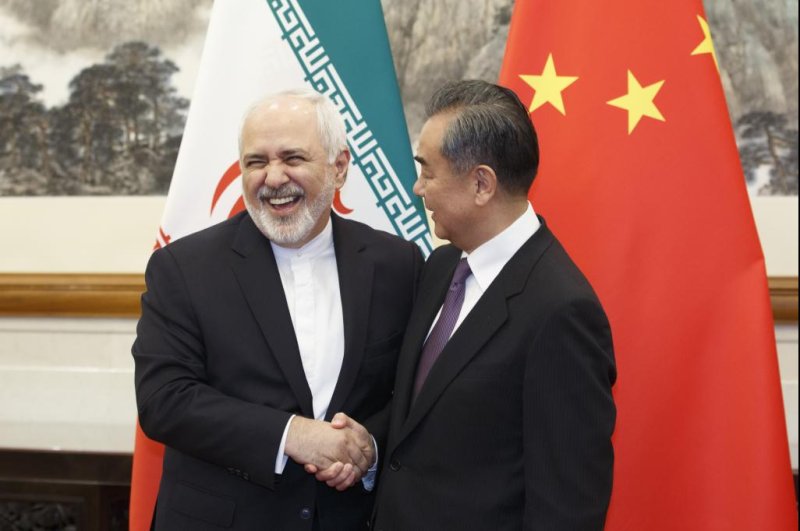Iranian foreign minister Mohammad Javad Zarif shakes hands Friday with Chinese diplomat Wang Yi in Beijing, China. Photo by Thomas Peter/EPA-EFE
May 17 (UPI) -- Iranian foreign minister Mohammad Javad Zarif said Friday that China, Russia and other countries must take "concrete action" to save the 2015 nuclear agreement without the United States in the deal.
Tehran has said recently it will not comply with certain parts of the pact in response to U.S. sanctions. Friday, Zarif traveled to Beijing to meet with Chinese foreign minister Wang Yi to discuss Iran's rights under the agreement, and to look for ways to improve Iran-China relations. While there, he said other countries should continue negotiating with Iran to salvage the deal.
Iranian officials blame the United States for escalating tensions and say other parties to the deal -- Britain, France, Germany, China and the European Union -- aren't doing enough to save it.
"So far, the international community has mainly made statements instead of saving the deal," Zarif told state-run IRNA. "The practical step is quite clear: Economic relations with Iran should be normalized. This is what the deal clearly addresses."
Zarif has also visited Japan, Turkmenistan and India on his current trip.
U.S. President Donald Trump has said the terms of the Obama-era deal were not strong enough to prevent Iran from developing nuclear weapons. He's also imposed additional sanctions to limit exports and harm Iran's economic interests.
Iran's energy minister has threatened the stability of OPEC and Tehran-backed Houthi rebels attacked oil stations in Saudi Arabia this week -- retaliatory moves intended to keep other oil-rich nations from increasing output to compensate for the decline in Iranian crude. A Saudi-led coalition hit back with airstrikes against Houthis in Yemen.
The rising tensions prompted the United States to send B-52 bombers, an aircraft carrier task force and a Marine expeditionary force to the Middle East.















